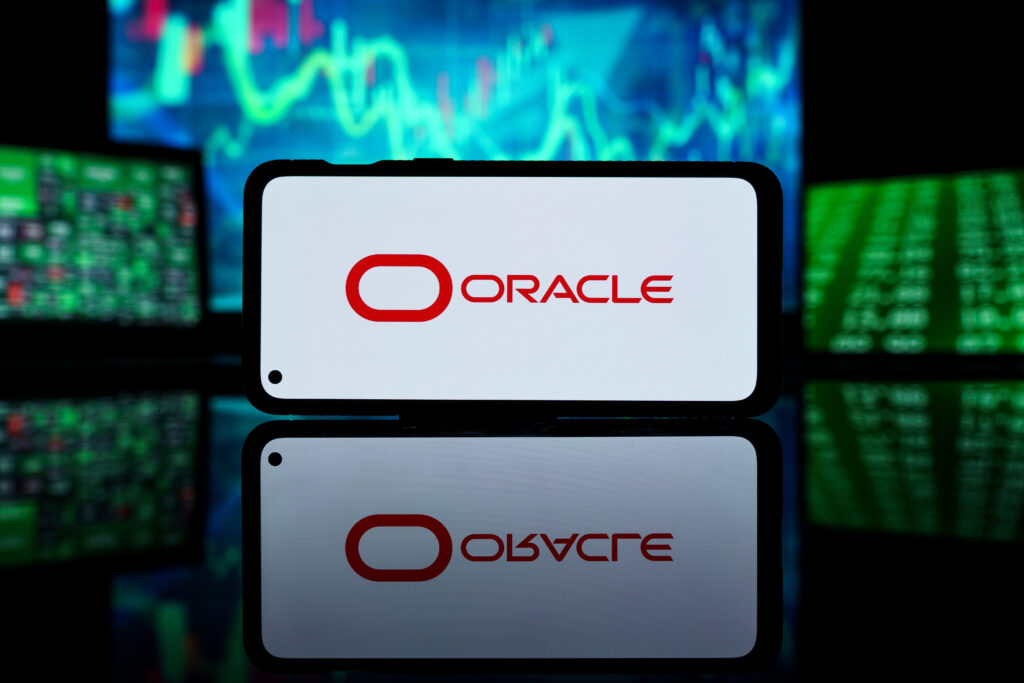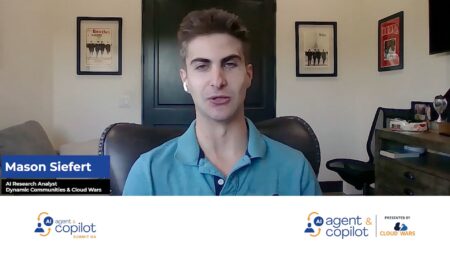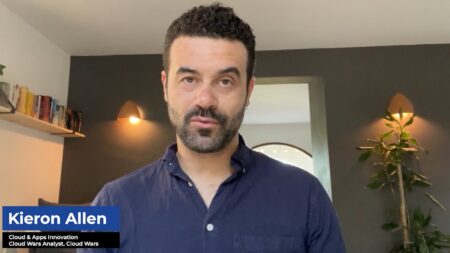
In another example of why it has become the world’s fastest-growing major cloud provider, Oracle is accelerating the transformation of some customers into groundbreaking digital-commerce hubs that not only blur but obliterate the traditional lines separating customers from partners.
While continuing to fully embrace the proven capabilities of systems integrators, industry-specific solution providers, functional experts, and cloud-native developers, Oracle is also co-creating highly disruptive new business models in logistics with FedEx and financial services with JPMorgan Chase as part of its global ecosystem strategy.
In fact, in my recent interview with Oracle senior vice-president Doug Smith — you can watch that full video here — the very first partners Smith mentioned were FedEx and JPMorgan Chase. On top of that, Oracle’s massive initiative to automate and optimize the entire sprawling global healthcare industry will include partnerships with many organizations that previously functioned as customers rather than co-creators of business value and innovation.
One more example of Oracle’s first-mover status in this dynamic category is its Alloy project, in which major players in regulated industries can transcend the cloud-customer status and become cloud providers within their industries and/or regions, with Oracle serving as their technology provider. (For more on that, please see Product of the Year? Oracle Revolutionizes Cloud Infrastructure with Alloy.)
My big takeaway from what Oracle’s doing is that we’re in the thick of an enormous and profound transformation of go-to-market strategies, roles, boundaries, and opportunities. And that’s exactly what we’re exploring with this entire 7-part Partners Ecosystem Innovation series, which this week has featured overviews of what’s going on at ServiceNow, Snowflake, and Oracle, and next week will explore the latest ecosystem developments at Workday, SAP, IBM, and Google Cloud.
And now, here’s a closer look at how Oracle is shaking up the ecosystem category.
Company Overview: The fastest-growing major cloud provider in the world, Oracle offers a vast portfolio of cloud services from infrastructure to databases to LOB applications and industry-specific solutions. With its acquisition of Cerner almost a year ago, Oracle is making a massive foray into the healthcare industry where it intends to automate and optimize everything from clinical trials to hospital inventory and scheduling. In recognition of Oracle’s bold transformation to a hypergrowth cloud vendor.
CEO Safra Catz was named Cloud Wars CEO of the Year for 2022.
Register here for your on-demand pass to view all content from Partners Ecosystem Digital Summit. The digital event, which took place on April 20, focused on analyzing the business and IT imperatives around cloud, AI, automation, data modernization, and cybersecurity that define the future of partnerships.
Ecosystem Leader: Doug Smith, Senior Vice-President, Strategic Partnerships and Global Partner Ecosystem (You can watch my full interview with Smith here.)
Ecosystem Position: While Oracle has deep and long-standing relationships with the big global integrators, midsize resellers, advanced-technology developers, and industry-specific boutiques, I believe it will take a leadership position in the explosive new field of, for lack of a better term, customers who double as partners. In the section below called “Unique Approach,” Smith describes how two classic corporate customers — JPMorgan Chase and FedEx — represent an entirely new type of partner working with Oracle to create industry-specific digital hubs with Fusion Cloud ERP as the hub.
Ecosystem Priorities: “As you look across industries, part of this digital transformation is a lot of these customers who aren’t historically software companies are starting to say, ‘Wait a minute — what business am I in? How do I deliver XYZ as a service to my customers?’ So it really fits in with the strategy for so many of these enterprises and the direction they’re going, and they recognize they need a technology partner like Oracle to help them accomplish those goals. So it’s a perfect match of the things that we do really well with the things that they do well and the specific knowledge and experience and market expertise they bring in. And when we partner deeply, we can help these traditional customers transform as they become more into software-as-a-service, and it opens up new revenue streams for them,” Smith said. “So it’s more and more relevant, and more and more helpful to our customers.”
Innovation Agenda: “The biggest change that I’ve been seeing — and it predated the last year — and it’s just gathering more and more steam and energy behind it is how do we go co-create solutions with our partner ecosystem,” Smith said “We deliver that holistic experience for customers, with our SIs, for example, where we’ve got more than 30 solutions developed jointly with those SIs and put into the market. So you can think of many of these as ‘digital transformation in a box’ and we’re co-selling these solutions in most cases with our partners. So our customers get this experience of, ‘Oracle working with a given partner in a deep and collaborative way, and both are committed to making sure I’m experiencing a solution that delivers the outcomes that I’m looking for.”
Unique Approach: I found it fascinating that the very first partners Smith mentioned were not big SI’s with massive Oracle revenue streams like Accenture or Deloitte but rather longtime and big-time customers: JPMorgan Chase and FedEx. “We’ve got the technology that is the foundational element for so many solutions, so we work with partners in a solutions-oriented way. It includes how we work with partners like JP Morgan and FedEx to deliver integrated banking services within our software suite with JP Morgan, and build integrated logistics services with FedEx as an example,” Smith said.
Big Quote: “Customer success is a huge focus for us. So we engage deeply around making sure our partners have the right bench of certified and trained consultants who are fully equipped to go deliver on those customer needs, making sure that that we’ve got the right support processes,” Smith said. “I’m really pleased, especially over the last two years, how we’ve made some pretty dramatic changes in how we worked with partners. We’ve built a lot of deep collaboration, and we’re working to do more of that.”
See the full video discussion with Doug Smith.









